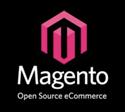by Eric Leuenberger
 Owners of ecommerce businesses have many options when it comes to choosing a platform for selling their products. Options include hosted solutions, open-source and custom solutions. Most ecommerce platforms, with the exception of the custom solutions, offer quick setup times and easy management. Custom solutions generally take too long to build and are out of range for most small to mid-sized store owners and thus not recommended.
Owners of ecommerce businesses have many options when it comes to choosing a platform for selling their products. Options include hosted solutions, open-source and custom solutions. Most ecommerce platforms, with the exception of the custom solutions, offer quick setup times and easy management. Custom solutions generally take too long to build and are out of range for most small to mid-sized store owners and thus not recommended.
With that in mind, store owners are left with two options: either an open source cart or a hosted cart solution. Each has its pros and cons. However, from my experience working with hundreds of ecommerce stores on many different platforms, the route that usually ends up offering the best bang for the buck is open source.
Open Source vs. Hosted Solutions
For the small to mid-sized ecommerce store, the lure of a hosted cart solution can sound like a match made in heaven. With no code knowledge needed, no hosting setup (hosting comes as part of the “package”), and ready-to-go templates, there is often no need for web development or design teams. Instead, a store can typically sign up for an account and be live within an hour or less. Examples of hosted solutions include Volusion, Yahoo Stores, BigCommerce, Shopify, and others.
While the cost savings and time-to-live stats seem perfect for most, cutting corners at this stage is going to dictate a lot of what can be achieved in the future, both in the way of sales and because the code base is locked down. The lack of access to the code with a hosted solution means the store is limited in what can be achieved. Some examples of limited areas include the checkout process, product pages, and within the shopping cart.
Furthermore, open source solutions can easily be moved from one server to another server with ease. Hosted solutions are not as easily moved. Data can be exported from hosted solutions, but moving them to a new server often requires rebuilding the cart on the new platform from the ground up.
Need more bandwidth because the company is growing? Looking for a dedicated server solution? Open source is the way to go as both issues can easily be satisfied with little hassle. Not so easy with a hosted solution where you share space with others.
Before going any further let’s dispel a common myth: a “free open source cart can’t help build a multi-million dollar online business.” This is false. The fact is, open source carts are no different than a “custom coded” cart built from scratch. The store owner has full access to the code and can change it anyway they like.
There are no limits to what can happen with open source – Google is the king of the open source movement, and they are worth billions of dollars.
Four Open Source Solutions
Here are four of the most commonly chosen open source carts.
 1. Zen Cart. Some say Zen Cart’s template gives the store a design that is too basic or simplistic, thus they don’t feel it is professional enough when compared to other options. It is true that the default template that comes with Zen Cart is pretty basic. However, you don’t have to choose the default template. There are plenty of professional looking free templates to choose from as well. Furthermore, with the right developer and knowledge, stores based on the Zen Cart engine can look like the top of the line cutting edge big guys of today.
1. Zen Cart. Some say Zen Cart’s template gives the store a design that is too basic or simplistic, thus they don’t feel it is professional enough when compared to other options. It is true that the default template that comes with Zen Cart is pretty basic. However, you don’t have to choose the default template. There are plenty of professional looking free templates to choose from as well. Furthermore, with the right developer and knowledge, stores based on the Zen Cart engine can look like the top of the line cutting edge big guys of today.
 2. PrestaShop. PrestaShop, one of the most popular online shopping cart engines, has a very strong community and list of expanding plugins. The administration side of things is one of the most user friendly of all open source carts. Decent functionality and the ability to fairly simply modify it make it a good choice for programmers or those with access to them.
2. PrestaShop. PrestaShop, one of the most popular online shopping cart engines, has a very strong community and list of expanding plugins. The administration side of things is one of the most user friendly of all open source carts. Decent functionality and the ability to fairly simply modify it make it a good choice for programmers or those with access to them.
 3. Magento. Magento’s backend is user friendly although navigation is not a simple task. The front end template that comes with the base package is nice enough to resemble some big players, and the built-in, SEO-friendly structure helps, however the cost of maintaining Magento is high compared to other open source platforms. For this reason it is often not the best option for businesses on a limited or tight budget.
3. Magento. Magento’s backend is user friendly although navigation is not a simple task. The front end template that comes with the base package is nice enough to resemble some big players, and the built-in, SEO-friendly structure helps, however the cost of maintaining Magento is high compared to other open source platforms. For this reason it is often not the best option for businesses on a limited or tight budget.
 4. OSCommerce. Being one of the original open source carts and a forerunner to Zen Cart, OSCommerce has been around a while. Its administration section is not as intuitive as one would like and the default template that comes with the cart will need changing to get a more professional look, but overall the cart is not a bad place to start for small stores on a tight budget. When compared with Zen Cart, the two are pretty similar, however, as far as features and community involvement go, Zen Cart might just take the cake here.
4. OSCommerce. Being one of the original open source carts and a forerunner to Zen Cart, OSCommerce has been around a while. Its administration section is not as intuitive as one would like and the default template that comes with the cart will need changing to get a more professional look, but overall the cart is not a bad place to start for small stores on a tight budget. When compared with Zen Cart, the two are pretty similar, however, as far as features and community involvement go, Zen Cart might just take the cake here.
Which platform is best?
Given all the options and varying needs of stores, there is no right or wrong answer. Keep in mind that beauty is in the eye of the beholder. Having said that, stores seeking the greatest bang for the buck (as in sales generated to investment spent), and those seeking the most flexibility for growth in the future, should highly consider open source for their ecommerce engine.